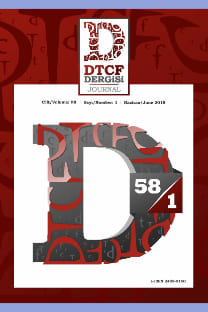BİR DİS/ÜTOPYA OLARAK POZİTİVİZM KARŞISINDA FARKLI BİLİMSEL YAKLAŞIMLAR
POSITIVISM AS A DIS/UTOPIA AND ALTERNATIVE SCIENTIFIC APPROACHES
___
- Adorno, W. Theodor. Minima Moralia Sakatlanmış Yaşamdan Yansımalar. Çev. Orhan Koçak ve Ahmet Doğukan. İstanbul: Metis, 2000.
- Bowen, Margarita. “The Ecology of Knowledge: Linking The Natural and Social Sciences.” Geoforum 16.2 (1985): 213-225.
- Comte, Auguste. The Positive Philosophy. Çev. Harriet Mertineau. Londra: Trubner & Co., 1875.
- Grünberg, Teo ve David Grünberg. “Toplumbilimleri Yönteminde Pozitivizm: Adorno ve Popper Tartışması.” Cogito 36 (2003):
- Kant, Immanuel. “‘Aydınlanma Nedir?’ Sorusuna Yanıt-1784.” Seçilmiş Yazılar. Çev. Nejat Bozkurt. İstanbul: Remzi Kitabevi, 1984.
- Koyré, Alexander. Bilim Tarihi Yazıları I. Çev. Kurtuluş Dinçer. Ankara: TÜBİTAK, 2000.
- Kuhn, S. Thomas. Essential Tension. Chicago: The University of Chicago Press, 1977.
- Kuhn, S. Thomas. The Structure of Scientific Revolutions. Chicago: The University of Chicago Press, 1996.
- Lakatos, Imre. “Bilimle Sözdebilim.” Çoğulculuğun Kuramcısı: Lakatos. Der. Cemal Güzel. Ankara: Bilim ve Sanat, 1999.
- Lakatos, Imre. “Yanlışlama ile Bilimsel Araştırma İzlencelerinin Yöntembilgisi.” Çoğulculuğun Kuramcısı: Lakatos. Der. Cemal Güzel. Ankara: Bilim ve Sanat, 1999.
- Popper, R. Karl. “Bilim: Kestirimler, Çürütmeler.” Sağduyu Filozofu: Popper. Der. Cemal Güzel. Ankara: Bilim ve Sanat, 1998.
- Wulf, Andrea. Doğanın Keşfi Alexander von Humboldt’un Yeni Dünyası. Çev. Emrullah Ataseven. İstanbul: Ayrıntı, 2017.
- ISSN: 0378-2905
- Yayın Aralığı: 2
- Başlangıç: 1942
- Yayıncı: Ankara Üniversitesi Dil ve Tarih-Coğrafya Fakültesi
BECKETT'İN NOT I OYUNUNDA DİLİN TERSYÜZ EDİLMESİ
SEYFETTİN ÖZEGE VE KİTABİYAT FELSEFESİ
İSTEMLİ VE İSTEMSİZ OTOBİYOGRAFİK ANILARA ULAŞMADA DOĞRUDAN VE ÜRETİCİ GERİ ÇAĞIRMANIN ROLÜ
Pınar KURDOĞLU ERSOY, Ali İzzet TEKCAN
KAYNAK BELLEĞİ: DERLEME ÇALIŞMASI
BİR DİS/ÜTOPYA OLARAK POZİTİVİZM KARŞISINDA FARKLI BİLİMSEL YAKLAŞIMLAR
ÜNİVERSİTE ÖĞRENCİLERİNİN INSTAGRAM'DAKİ BENLİK SUNUMLARI
Günnur ERTONG ATTAR, Arzu ALTUN, Ali GÜNDÜZ
DİJİTALLEŞTİRİLEN KÜLTÜREL MİRASA AÇIK ERİŞİM: TÜRKİYE İÇİN BİR MODEL ÖNERİSİ
